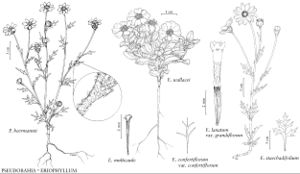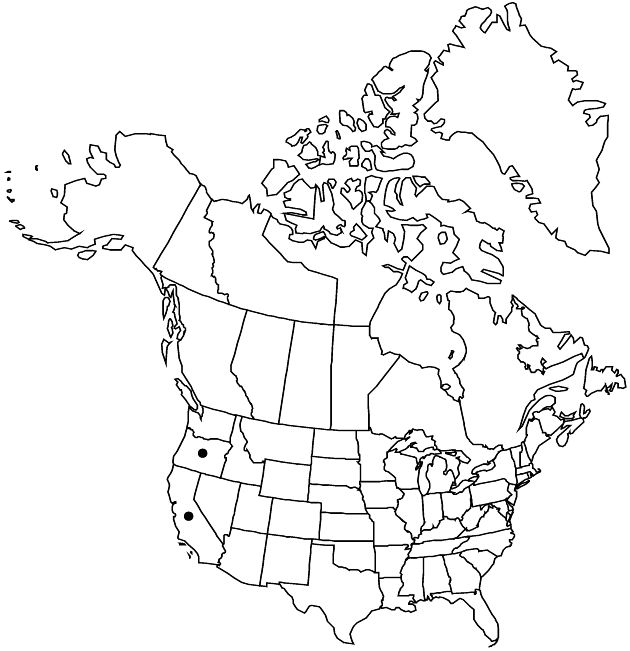Eriophyllum staechadifolium
Gen. Sp. Pl., 28. 1816.
Subshrubs, 30–150 cm. Stems ± erect. Leaves (proximal usually alternate, sometimes opposite): blades linear, lanceolate, or ovate, 3–7 cm, usually 1–2-pinnately lobed, ultimate margins entire or toothed, revolute, abaxial faces white-woolly, adaxial glabrate (distal leaves usually similar). Heads 40–80+ per array. Peduncles mostly 0–1(–1.5) cm. Involucres campanulate, 2–3+ mm diam. Phyllaries 8–11, distinct (oblong, carinate, apices obtuse or acute). Ray florets 0 or 6–9; laminae yellow, 3–5 (× 2–3) mm. Disc florets 30–40; corollas 4 mm. Cypselae 3–4 mm; pappi of 8–12 oblong or oblanceolate scales ca. 1 mm. 2n = 30.
Phenology: Flowering Apr–Sep.
Habitat: Coastal dunes and bluffs
Elevation: 0–100 m
Discussion
Morphologically, Eriophyllum staechadifolium appears to connect E. confertiflorum var. confertiflorum and E. (Constancea) nevinii.
Selected References
None.

